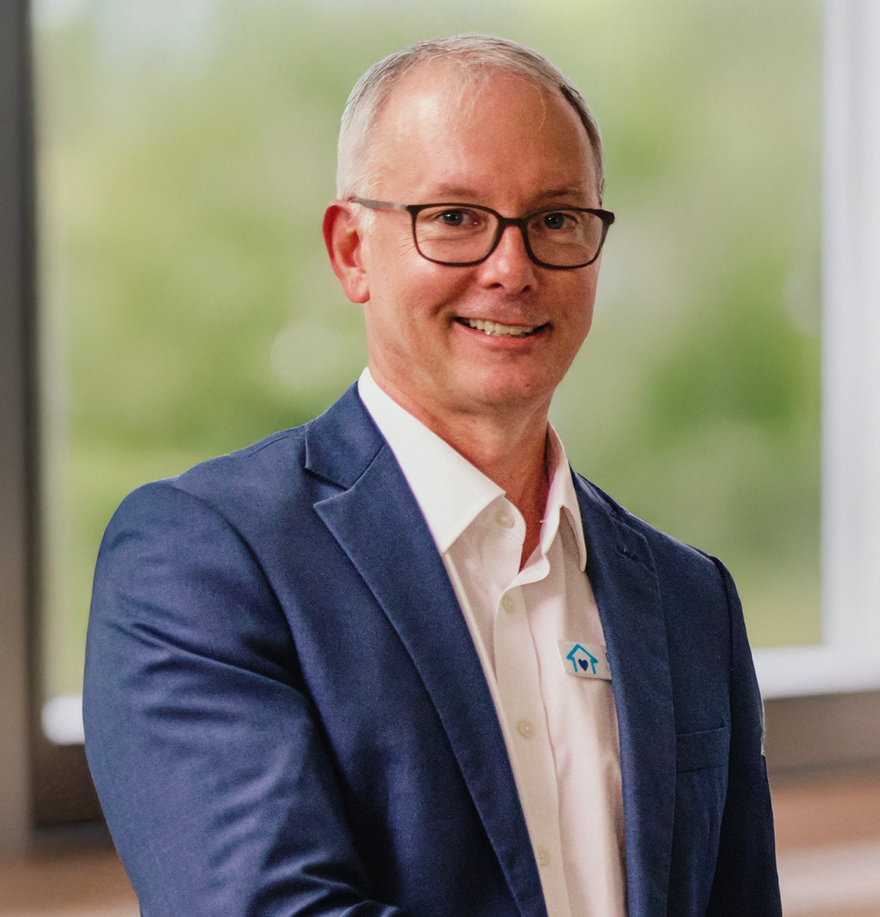

David is a widely respected leader in aged care, both in Australia and internationally.
He and his team take a global, holistic perspective to caring for older people and people with dementia.
Under his stewardship, Harbison has introduced programs like Motiview to Australia – earning international recognition at the 2025 Eldercare Innovation Awards and partnered with Western Sydney University on research into improving the physical, social and emotional wellbeing of older people.
David has introduced emotional intelligence training to strengthen staff culture and launched intergenerational programs that bring residents, families and the local community together.
Drawing on insights from international and national study tours, David turns ideas into action to deliver meaningful change. He leads with purpose and humility and his commitment to reimagining ageing is felt far beyond Harbison. He shares his knowledge generously, collaborates across the sector and inspires his team and the industry to think boldly.
A multimodal model for wellbeing: Evaluating the motiview cycling program in residential aged care
Precis
In residential aged care, engaging older adults in meaningful physical activity is often challenged by depression, reduced self-efficacy and social isolation. This abstract presents robust, peer-reviewed evidence from a mixed methods pilot study formally evaluated in partnership with the MARCS Institute at Western Sydney University (Brookman et al., 2024, BMC Geriatrics). The study focused on the Road Worlds for Seniors – a 26 day international cycling competition delivered through the Motiview program at Harbison. As aged care continues to evolve, evidence-based, multidimensional programs like Motiview are essential to improving the wellbeing of Australians.
Developed in Norway and introduced to Australia by Harbison in 2018, Motiview uses adaptive bikes and a library of over 2,500 immersive videos to encourage physical, cognitive, and social engagement, particularly for people living with dementia.
The Road Worlds for Seniors has grown to include nearly 7,000 participants across ten countries. In 2024, Harbison residents cycled a record-breaking 47,033 km – up from just 261 km in their first year, demonstrating exponential growth and sustained engagement.
Addressing the conference theme of research-driven outcomes and translating evidence into daily practice, this study explored how a gamified cycling program using adaptive technology influenced resident wellbeing, highlighting a ‘constellation of benefits across physical, psychological, and social domains.’
32 residents participated across two Harbison locations. Pre- and post-intervention data revealed statistically significant improvements in limb strength, sit-to-stand results, self-efficacy, and social connection, as well as a measurable reduction in depression. Qualitative interviews with residents and staff further reinforced the program’s capacity to foster inclusion, motivation, reminiscence, and joy – particularly through gamification and its person-centred, accessible design. Participation was inclusive of residents with varied cognitive and physical abilities, including those living with dementia.
Today, Harbison operates a fleet of 30 bikes. Driven by Harbison, the program has expanded to seven aged care providers across Australia and is now building partnerships in New Zealand and Japan, demonstrating the scalability of this intervention.
Recognised globally, the Harbison Motiview program was named Operator of the Year, Facility of the Year, and Innovation of the Year (Dementia Empowerment) at the 2025 Eldercare Innovation Awards in Singapore. The recent opening of a dedicated Motiview Clubhouse (open to both residents and community members) marks the next step in scaling access and community impact.
Lessons learned from SAGE Study Tours